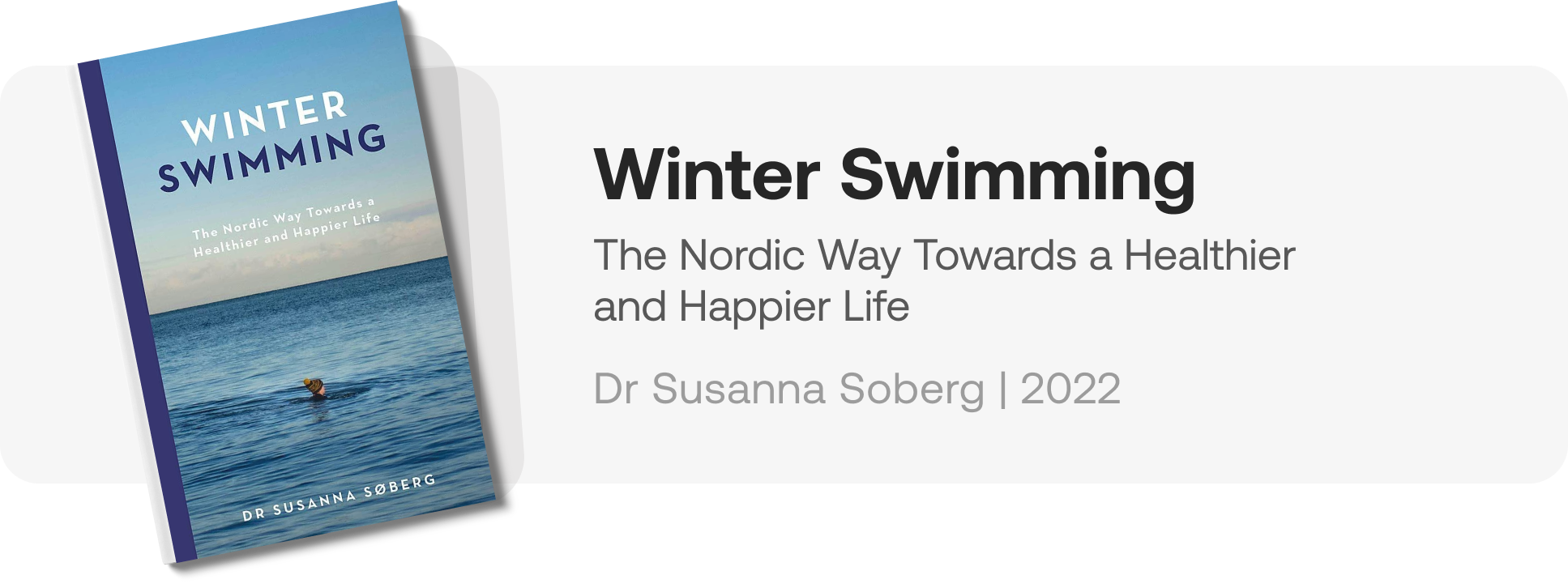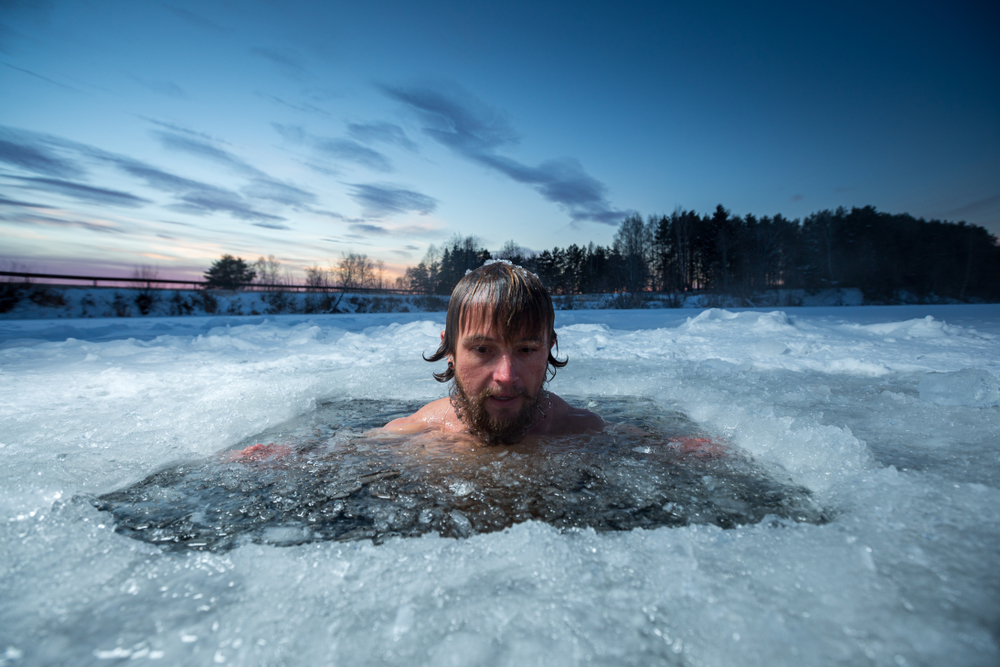Around 55 million people in the world are living with dementia and this number is expected to rise to 78 million in 2030, according to World Health Organisation. Even worse, in 2050 it is expected to increase to up to 139 million.
Currently, over 60% of those who suffer from dementia live in low and middle-income countries. As there is no cure at the moment, sustaining a comfortable life with this diagnosis seems like an incredibly difficult task. Keeping your mind sharp and healthy nowadays must be a preventative strategy for every individual.
The good news is that your cognitive health depends mostly on your lifestyle and less on your family history. Some of these lifestyle changes are completely free, like social activity, exercise, and thermal therapy. Immersing yourself in cold water is an amazing combination of these. Let’s find out how exactly it can clear up that brain fog and make you healthier.
What is cold water immersion?

Some may think it’s in the name, yet we have to specify that even if you are not actively swimming and just ‘swaying’ in the water or staying in cold shower, it still can be considered cold water immersion. Look at this activity as a range of participation levels – amateur cold water enthusiasts can plunge into cold water reservoirs and experienced athletes can swim for a mile. The main principle is that it has to happen in uncomfortable temperatures. Normally, we start feeling the effect of cold shock if the water’s temperature is 15°C (59°F) or lower.
There are many ways to expose yourself to cold temperatures but swimming and plunging have a unique side to them. For example, when you swim outdoors during different seasons, you can gradually adapt to the changing temperatures, yet unpredictable weather will bring an element of surprise to your routine. Opposite to the cold shower, where water falls on the body in drops, swimming and plunging offers an immersion of the entire body. When you are in the shower, the droplets have a short time to warm up a little while flowing to your feet. As a result, the brain receives ambiguous signals. You don’t get that in the lake, sea, or river. Full body immersion accompanied by hydrostatic pressure triggers the sympathetic nervous system in more complex ways.
What happens in our brains when we get into cold water?

The harshness of cold water is more than just a chill on the skin. Exposure to uncomfortable temperatures actually decreases cognitive functions, resulting in reduced brain activity and inhibited memory recall. But don’t worry, it’s only temporary and it’s a good thing!
When we get into the cold water, our body goes into shock. It activates ‘flight-or-fight’ mode. At first, your sympathetic system activates which immediately results in hyperventilation and increases heart rate. At the same time, the immersion turns on the parasympathetic system, which decreases the heart rate and blood pressure. During this physiological conflict, hydrostatic pressure activates baroreceptors that sense changes in blood pressure, and send signals to the brain that control heart rate. They suppress the sympathetic system, which results in decreased blood flow in your brain.
Long story short, this process is like hitting a ‘slow down button’ for your mind. This activity offers a rest to the cognitive system while making the other parts of your body work harder. Nowadays, when our brain is working constantly, cold water immersion can bring it into much needed meditative state.
Boosting mood through cold water immersion

Submerging yourself in cold water is scientifically proven to boost your mood which can make great improvements in fighting cognitive decline. Cold water procedure increases dopamine levels and dramatically increases the level of endorphins, which results in the feeling of happiness, good mood, and pain relief. As we mentioned earlier, it also activates the parasympathetic nervous system and stabilises serotonin and cortisol levels which balance out one’s mindset.
A recent study from Bournemouth University explored the effects of cold water immersion on brain activity. The study involved 33 volunteers bravely submerging themselves into an icy pool for 5 minutes. Shortly after that, their MRI scans were taken to reveal changes in the connectivity between the parts of the brain that process emotions.
Researchers found that certain parts of the prefrontal and parietal cortices had reconfigured themselves in order to cope with the shock. After this physiological shift occurred, participants reported feeling heightened alertness, and excitement levels significantly increased. After analysing the MRI scans, the researchers concluded that even brief immersion into cold water can significantly improve overall well-being.

How do cold-shock proteins combat dementia?

It has long been observed that our brains have a remarkable capacity to rewire; however, recent research into the effects of temperature on this process reveals some surprising results. In a recent extraordinary breakthrough, scientists have discovered a protein in the blood of regular winter swimmers that may guard against dementia.
The research led by professor Giovanna Mallucci from the UK Dementia Research Institute’s Centre at Cambridge University studied cold-water swimmers in London. The participants were monitored for two years during their swimming activities at Parliament Hill Lido — a 60-meter-long, unheated, outdoor pool.
The remarkable “cold-shock” protein found in swimmers’ blood is known as RBM3. Previous studies have proved RBM3 to be effective at delaying and even repairing some damage caused by the disease in mice, which is opening up possibilities for new treatments in humans. This discovery of cold exposure benefits could provide hope to all those facing dementia around the world.
Dementia, oxidative stress, and cold water immersion

As we age, our bodies become vulnerable to a host of potentially serious illnesses. Unstable molecules with a missing electron, known as ‘free radicals’, spark oxidative reactions within us. Studies have shown that rising levels of free radicals in the body are one possible indicator for diseases, including Alzheimer’s disease.
An imbalance between free radicals and antioxidants in our bodies is connected to oxidative stress. Exposure to the cold water is also a type of moderate oxidative stress, but it’s actually beneficial for the body. According to the study, winter swimmers adapt to repeated mild oxidative stress and build improved antioxidative protection as the response.
Regular cold water exposure can train your immune system, potentially delaying or preventing various diseases as you age. While further long-term studies are needed to really understand its effects, cold water enthusiasts may enjoy increased longevity by taking advantage of this natural form of exercise.
Winter swimming clubs – a great way to socialise

The lack of human interaction can significantly detriment to our cognitive health, resulting in a 50% increased risk of dementia, according to The Centers for Disease Control and Prevention (U.S.). Fortunately, it’s never too late to socialise – research shows that maintaining healthy social relationships can provide us with important brain-boosting benefits.
In this context, winter and cold water swimming is an amazing opportunity to build strong social connections. Winter swimming is a centuries-old tradition and a huge number of countries have special clubs and societies dedicated to this activity.
Danish author and metabolic scientist Dr. Susanna Søberg describes such clubs in her book ‘Winter Swimming: The Nordic Way Towards a Healthier and Happier Life’. She joined one of the Copenhagen swimming societies and found out that people bond through enjoying nature and creating their own rituals, like having coffee and visiting the sauna together after swimming in a lake and immersing within nature’s depths.
Dr. Søberg stated that clubbers describe these communities very positively. These are a kind of oasis in which they come several times a week or even every day.
Disclaimer

If you have pre-existing problems with your heart health, we do not recommend getting into cold water right away. You might want to discuss it first with your doctor and start the practice slowly with a gradual temperature decline. According to the Royal Life Saving Society (UK), a sudden rise in blood pressure can be fatal for people with a pre-existing heart condition. Each year a number of people who are suspected of drowning, turn out to have had a heart attack.
Fun and interesting facts about cold water immersion
-
There are more than 140 winter swimming organisations in China with over 200,000 participants.
-
Ram Barkai, an extreme swimmer from South Africa, set a Guinness World Record in Antarctica in 2008 when he swam 1 km (0.6 mile) in 0-1°C (32-33.8°F).
Cold water immersion: a possible cure for dementia?

Deliberate exposure to cold water is a great form of thermal therapy and social activity that can be a powerful tool to fight dementia and cognitive decline. The ‘cold-shock’ protein produced as a result of the procedure can help restore the damaged connections within the brain, and this discovery needs further serious exploration. Cold water immersion boosts dopamine, and serotonin balances out stress levels and activates the parasympathetic system which gives our mind needed rest. It’s also a great way to sustain social activity and connections no matter the age.
Hungry for knowledge? Here is more
If you want to learn more about the world of cold water immersion, we recommend you read the book ‘Winter Swimming: The Nordic Way Towards a Healthier and Happier Life’. Dr. Susanna Søberg, the author of the book, practices cold water immersion herself. She interviewed people in her local swimming club and has done multiple studies on the subject.











